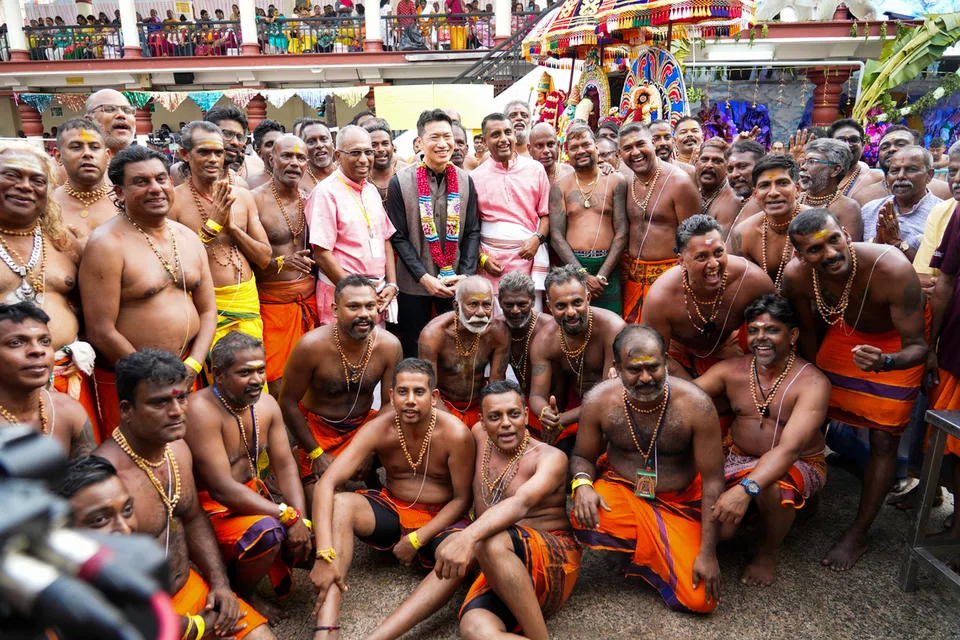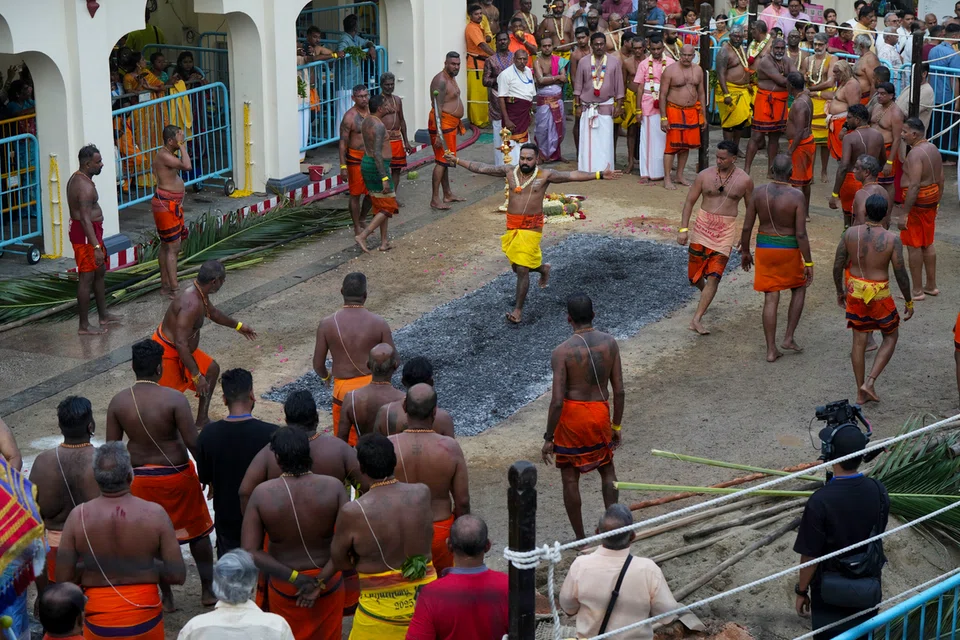For more than a decade, father and son M. Raveendran, 60, and R. Manoj Kumar, 31, have taken part in Sri Mariamman Temple’s annual Theemithi (fire-walking) ceremony together, a Hindu ritual of walking barefoot across a pit of burning embers.
“I started serving at the temple as a volunteer when my son was just a child,” said Mr Raveendran. “Watching him grow into this role and carry on the tradition has been truly inspiring. From the first time he walked the fire pit, I knew he would continue this sacred practice.”
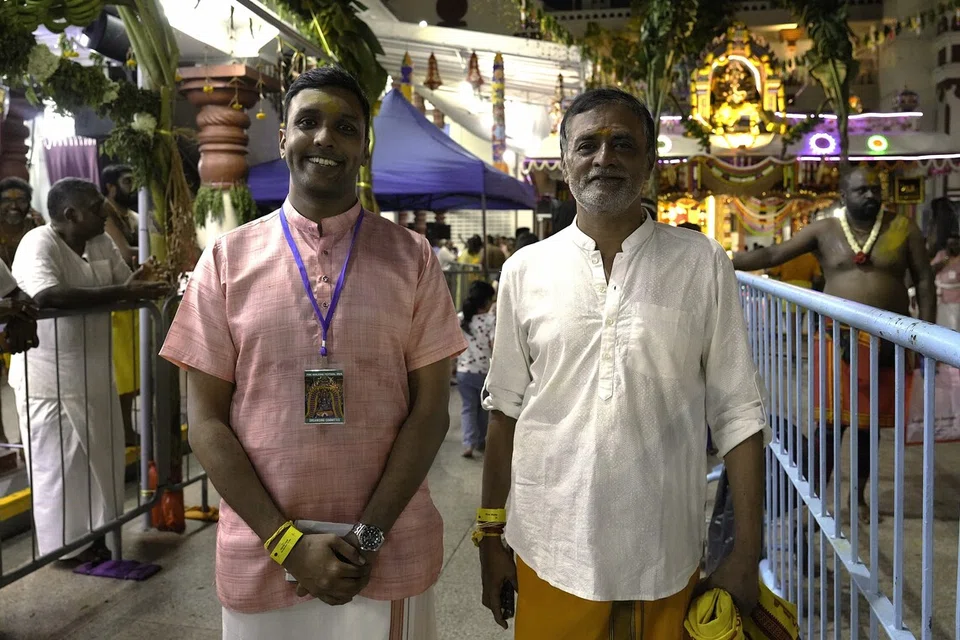
Mr Manoj, who first participated in his late teens, admitted it was his father’s calm confidence that gave him courage. “I was scared the first time,” he recalled. “But when I focused on the prayers, the fear disappeared. Now, walking beside my father has become something I look forward to every year, a moment of faith we share together.”
Faith also transcends ethnicity at the festival. For Mr Desmond Mong, 44, a Chinese devotee who walked the fire pit for the first time this year, curiosity turned into reverence. “My friends shared their experiences with me. I felt no fear when I stepped onto the fire pit. I simply held my prayers in my heart and walked,” he said.
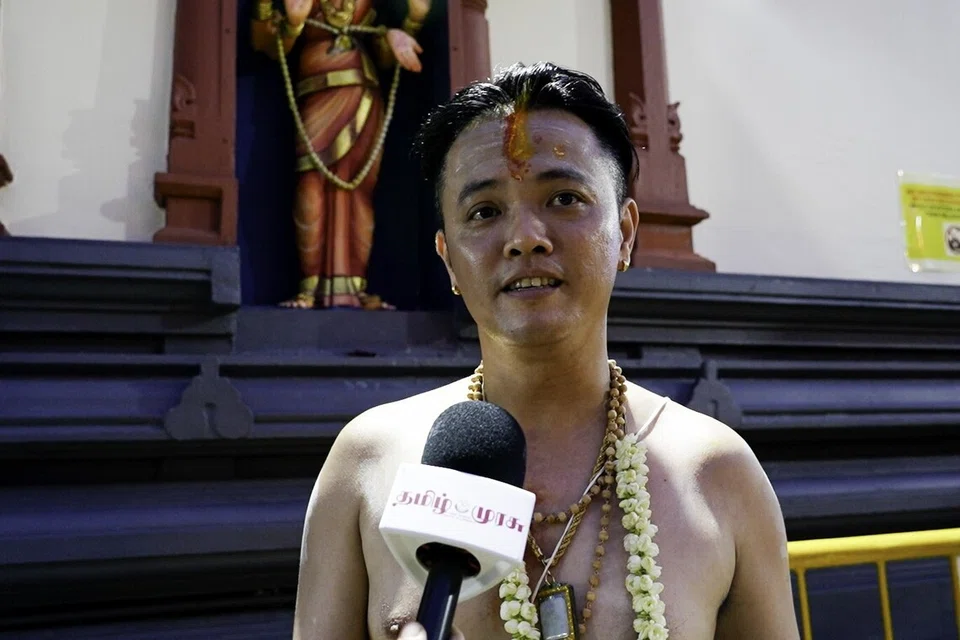
Theemithi has been observed in Singapore for more than 150 years and re-enacts a scene from the Hindu epic Mahabharata, where Goddess Draupathi proves her purity by walking through fire. The ritual is the culmination of more than two months of prayers and ceremonies that begin in late July.
This year, around 4,000 male devotees walked barefoot across a glowing pit of hot coals on Oct 12, fulfilling vows made to goddesses Sri Mariamman and Sri Draupathi Amman.
Leading the ceremony was Sri Mariamman Temple’s Head Pandaram Venugopal Thirunavukkarasu, who has served at the temple since 2019. Carrying a sacred karagam (a vessel symbolising the deity), he completed a 4km foot procession from Sri Srinivasa Perumal Temple along Serangoon Road to South Bridge Road before walking across the fire pit shortly after 6.15pm.
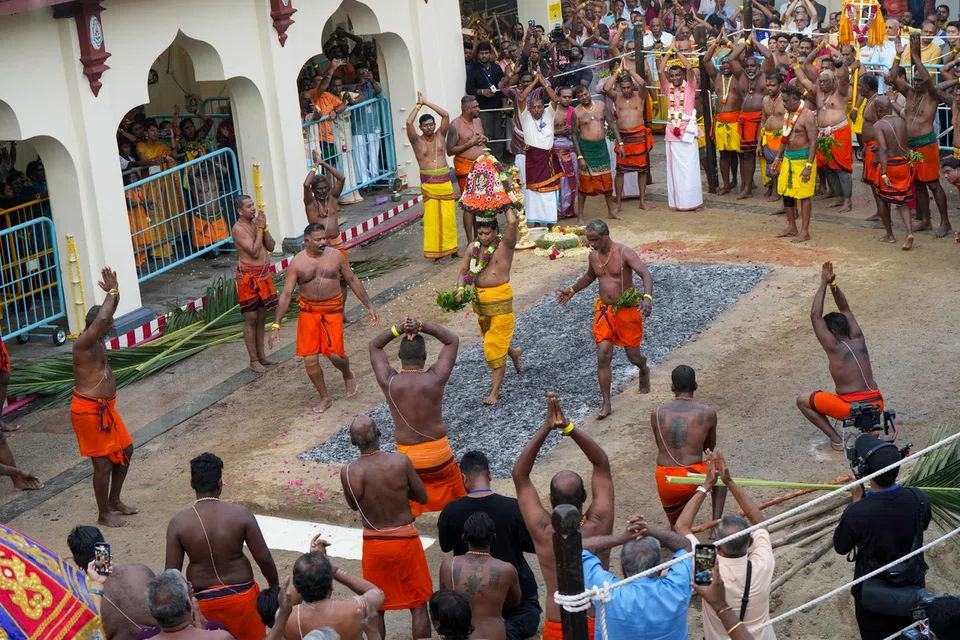
He was followed by thousands of devotees, who cooled their feet in a milk-filled trough after crossing the pit of embers. Later, about 750 women devotees circumambulated the fire in prayer.
Acting Minister for Culture, Community and Youth and Senior Minister of State for Education David Neo attended the ceremony as Guest of Honour, observing the ritual from the temple courtyard.
Among the onlookers was 65-year-old Mr Suppaiyah Gopal, who had walked the fire pit for 26 years and eagerly awaited seeing his 30-year-old son Mr Vishnuvardhan take part for the first time.
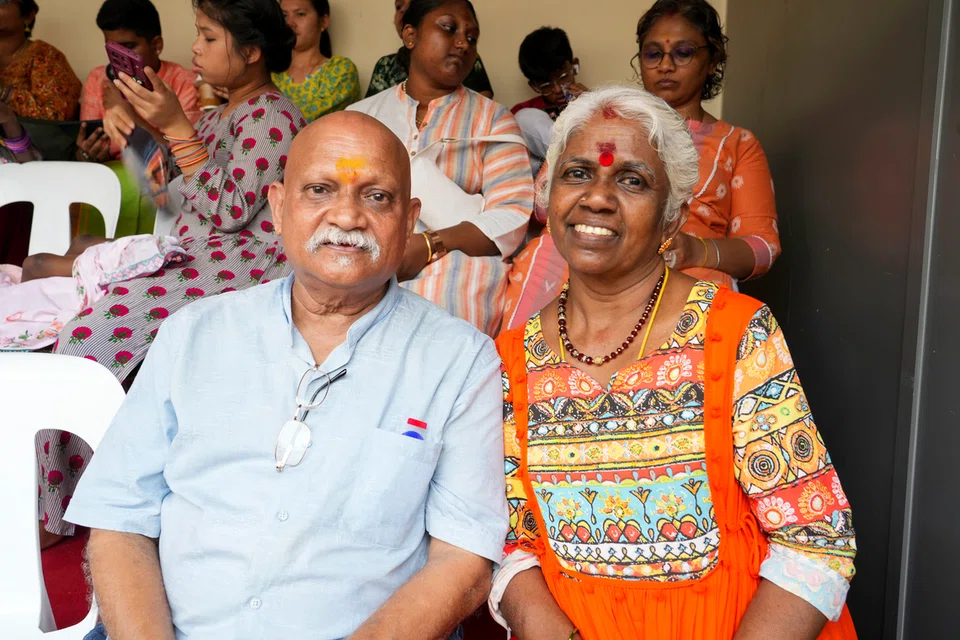
“When I first fire-walked, my parents were there to watch me,” he said. “Today, it’s my turn to watch my son. I see this as the goddess’ blessing.”
Mrs Thanapakiam Chandrasekaran, 48, said that she grew up watching her father, then her husband, walk the fire pit, and now her son has joined the tradition. “No matter how many times I’ve seen it, there’s always a flicker of fear in my heart. But it’s comforting to see them emerge safely. It strengthens my faith,” she said.
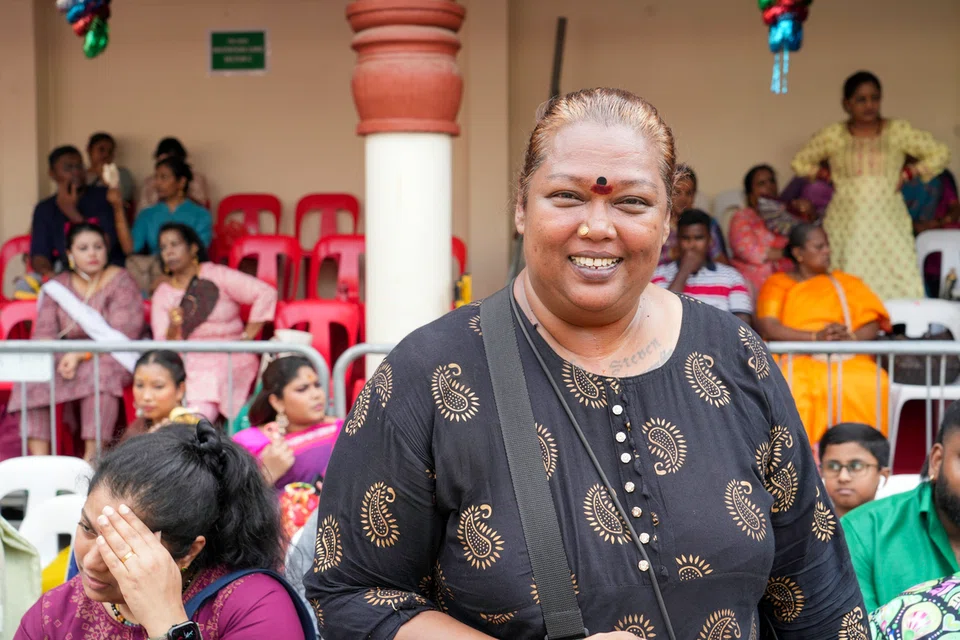
Veteran devotee S. Saravanan, 50, who first fire-walked at 17, said his understanding of the ritual has deepened over the years. “At first, it felt like a game or a challenge with my friends,” he said. “But from the third year onwards, I realised its true power. This time, after completing the fire-walk, I felt both fear and devotion, and I started crying without even noticing.”
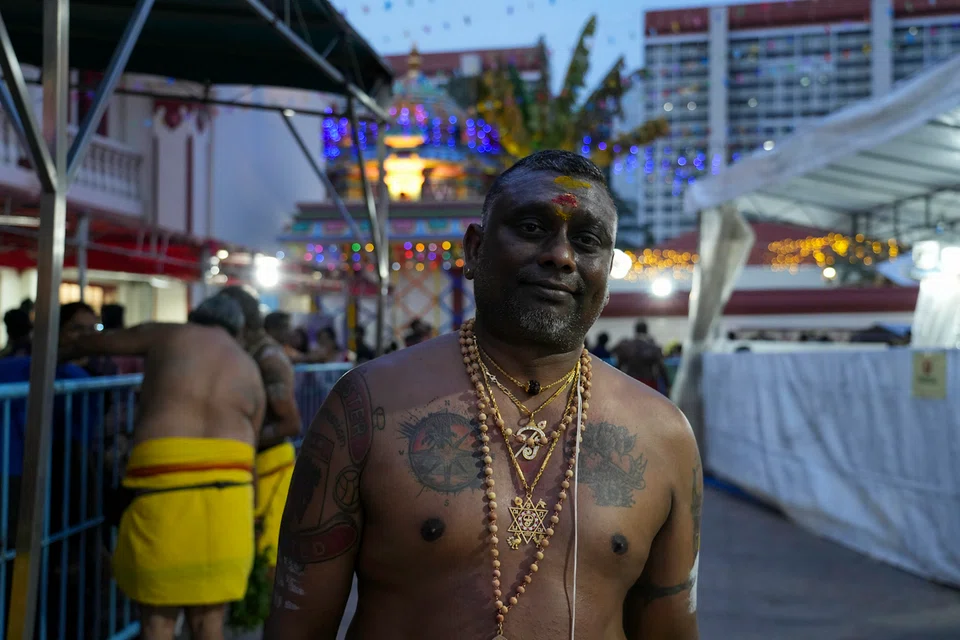
This year, the new Sri Mariamman Temple chairman Shekaran Krishnan, 59, who took office in June last year, also walked the fire pit for the first time.
Reflecting on the experience, he said: “It was peaceful and fulfilling. Being part of the ceremony with the devotees, witnessing generations of families, and feeling their devotion was very moving.”
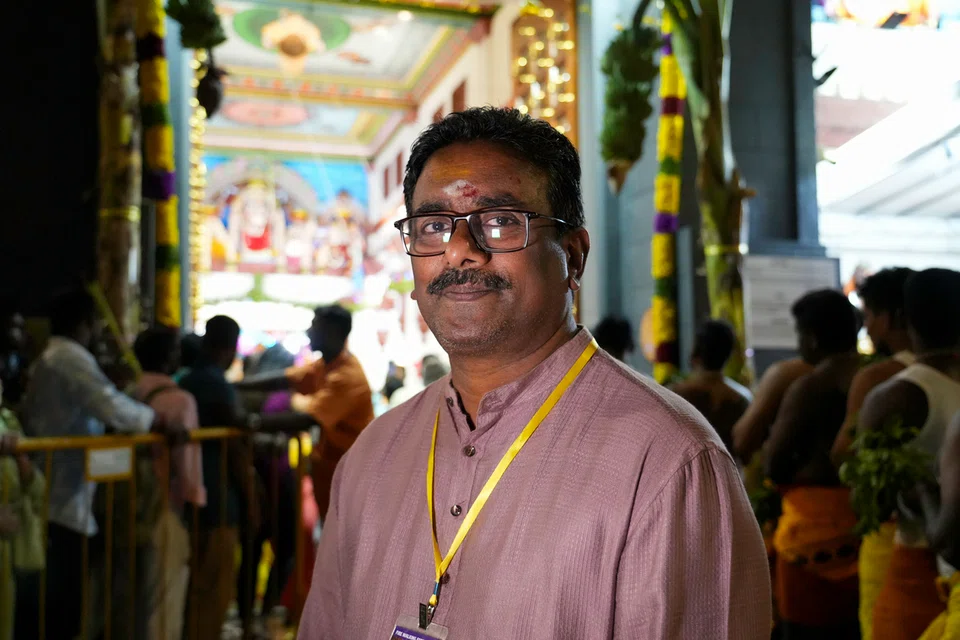
He said that the temple had expanded the public viewing area, increasing seating capacity from about 300 last year to around 350 this year, and estimated at least 15 per cent more young participants than last year.
The fire pit, measuring 5.5m-long and 2.5m-wide, was prepared with 20,000 pieces of wild neem wood, which burnt slowly to create an even bed of embers. Around 1,000 volunteers supported the festival’s activities, from tending to the fire pit to crowd management to preparing annathanam (free meals) for nearly 10,000 devotees.
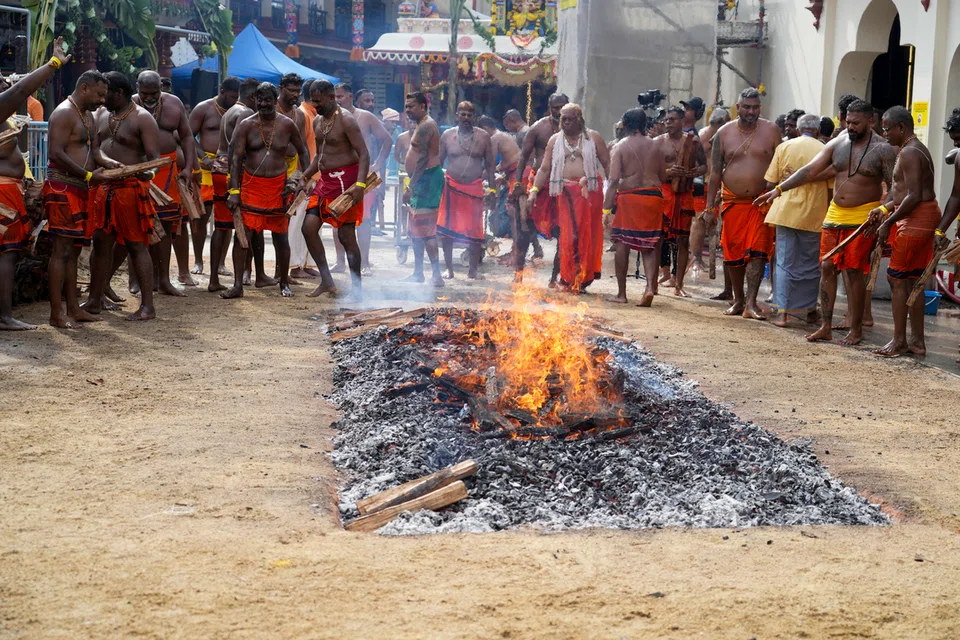
For many, Theemithi sets the tone for Deepavali celebrations, which falls on Oct 20 this year. “I fire-walk with no specific requests,” said Mr Sasidharan Athmalingam, 46, a regular participant for 20 years.
“I just keep the goddess in my heart. Once I’m done, I greet everyone with ‘Happy Deepavali’, because that’s when the festivities begin for me,” he said.
